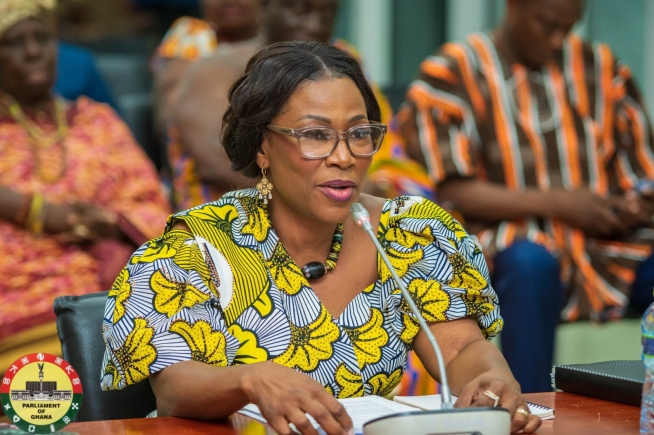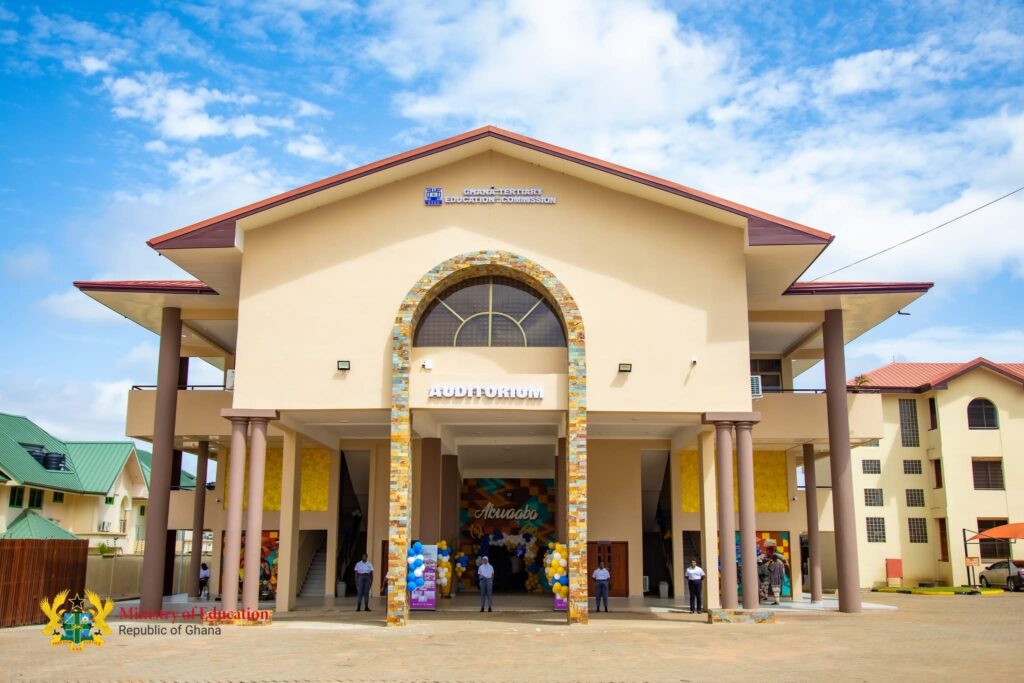The Ghana Tertiary Education Commission (GTEC), an entity responsible for regulating and overseeing tertiary education in Ghana, has been in the news lately.
GTEC has been publicly calling out Members of Parliament (MPs) and Ministers in Ghana for using unearned academic titles in their names.
Recently, GTEC has been involved in a public dispute with Grace Ayensu-Danquah, the newly appointed deputy minister of health and a first-term lawmaker.
At the center of the controversy is her use of “Professor” alongside “Doctor” in her name on public documents. The issue has ignited public debate about the intersection of politics, academia, and integrity.
About Grace Ayensu-Danquah
Grace Ayensu-Danquah, 58, is a U.S.-trained surgeon with a focus on burns and reconstructive procedures.

Born in Essikado in Ghana’s Western Region, she earned a Bachelor of Science in biology before pursuing her medical degree and a master’s in public health.
Her professional accolades include fellowships from institutions, including the American College of Surgeons (FACS) and the Ghana College of Physicians and Surgeons (FGCPS).
In politics, she represents the Essikado-Ketan constituency for the opposition National Democratic Congress (NDC), having won her seat in the 2024 elections as the first woman to do so.
Her recent elevation to deputy health minister under President John Dramani Mahama’s administration has placed her in the national spotlight.
Yet, her self-styling as “Prof. Dr. Grace Ayensu-Danquah” — evident on her social media profiles, parliamentary listings, and public appearances — has sparked debate.
GTEC argues that she lacks the formal academic rank of professor, accusing her of misrepresentation.
Some of her supporters counter that her adjunct roles in U.S. institutions justify the title under certain conventions.
The Controversy
The controversy gained momentum in late July when social media users and opposition figures began questioning her credentials.
One widely shared post from an account associated with the ruling New Patriotic Party (NPP) claimed to have obtained confirmation from the University of Utah, where Ms. Ayensu-Danquah has held affiliations, stating she is not a full professor and should not present herself as such.
This revelation prompted calls for her parliamentary vetting details to be revisited, with allegations that she may have misled lawmakers during her confirmation hearings.

GTEC entered the fray, issuing a directive on August 17 ordering Dr. Ayensu-Danquah to cease using the “Professor” title.
In a statement, the commission’s director-general, Prof. Ahmed Abdulai Jinapor, asserted that after reviewing her documents, there was no evidence that she holds a professorial rank in any accredited institution.
“She has yet to provide us with a document that confers the title of professor on her,” Prof. Jinapor said in an interview, warning of potential legal action if the usage continues.
Dr. Ayensu-Danquah’s legal team fired back swiftly, accusing GTEC of bias, procedural impropriety, and political motivations.
In a letter to the commission, her lawyers argued that the review process was flawed and lacked transparency, demanding a retraction of the directive.
During her parliamentary vetting earlier this year, Dr. Ayensu-Danquah defended her title by referencing the American academic system, where adjunct or clinical professors in medical fields often use “professor” in professional contexts.
She has also challenged Prof. Jinapor personally, daring him to compare curricula vitae in a televised interview: “Bring your CV, let’s compare.”
Use of Appropriate Titles
Defenders, including NDC affiliates, point to her adjunct roles and argue that GTEC’s intervention is overreach, potentially discriminatory against professionals trained abroad.

Experts in academic governance say the case highlights a gray area in title usage, particularly for diaspora-trained Ghanaians.
In the U.S., where Dr. Ayensu-Danquah practiced and taught, “professor” can be a courtesy title for adjunct faculty in clinical settings, but it is not equivalent to a tenured full professorship.
Ghanaian regulations, overseen by GTEC, require verification of such titles for public and professional use, especially in elected roles.
Investigative journalist Manessah Azure added his voice to the debate on the social media platform X, where he sided with GTEC for going after persons with unearned titles.
“If Dr. Grace Ayensu-Danquah’s service to humanity as a medical doctor, her election as the Member of Parliament for Essikado-Ketan, and her appointment as deputy minister are not adequate, clinging to a “Professor” [title] she has not earned will not do her any good,” he said.
GTEC has also sent out notices to other MPs and members of the public about their “unearned” titles the public, including Joseph Gutag, President of the Ghana Traders Union Association (GUTA), and Hassan Ayarig, Presidential Candidate of the APC.
This article was edited with AI and reviewed by human editors





